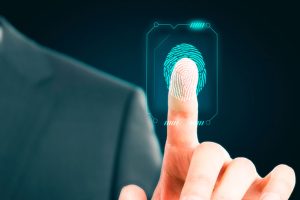
In a world where digitization is advancing by leaps and bounds, document certification becomes a crucial issue to ensure the authenticity and reliability of information. Businesses, security professionals, financial consumers, developers, and legal professionals need to be aware of the changes in this area. This blog explores how document certification has evolved in the digital age and what we can expect in the future.
Digital Transformation and its Impact on Document Certification
The digital revolution has changed the way we handle documents. Previously, authenticity was verified by physical seals and handwritten signatures. Now, in a digital world, companies and professionals are looking for electronic alternatives that offer the same security.
The rise of digital technologies has facilitated the implementation of more efficient solutions to certify documents. Digital tools not only speed up the process, but also reduce human errors. An IBM report revealed that 90% of the information generated in recent years is in digital format, and this includes important documents that require certification.
With this transformation, new opportunities have been created for developers tasked with designing secure verification systems. Digital platforms offer a faster and more cost-effective solution for certifying documents, allowing companies to improve their operational efficiency and focus on other core aspects of their business.
Emerging Technologies in Document Certification
Blockchain technology is one of the most promising innovations in document certification. By providing a secure and immutable way to record transactions, blockchain ensures that documents are not altered after they are created.
This technology is being used to certify a variety of documents, from legal contracts to property records. Blockchains enable clear and transparent tracking of transactions, giving stakeholders the necessary confidence in the authenticity of documents.
Another emerging technology is the digital signature. These signatures use cryptographic algorithms that certify the identity of users and guarantee that the document has not been altered since it was signed. This form of certification is widely used in the financial and legal sector, where document integrity is critical.
Benefits of Digital Certification for Businesses
For companies, digital certification of documents represents a number of significant benefits. First, it reduces the costs associated with traditional certification processes, such as printing and transporting physical documents. In addition, it streamlines workflow, allowing documents to be certified and verified in a matter of minutes.
Digital certification also improves security. By implementing advanced technologies, companies can better protect their sensitive data against unauthorized access. According to a PwC study, companies that adopt digital certification technologies experience a reduction in security incidents of up to 30%.
Finally, digital certification enhances a company’s reputation. By ensuring the authenticity and reliability of documents, companies can build trust with their customers and business partners, which is essential in a competitive environment.
How it Affects Security Professionals
For security professionals, document certification in the digital age presents new challenges and opportunities. As more documents are stored and transferred digitally, the need to protect this data from cyber threats becomes paramount.
Security professionals must be up-to-date on the latest technologies and trends in digital certification. This includes understanding how digital signatures and blockchain work, and how they can be integrated into existing security systems.
In addition, digital certification provides security professionals with an additional tool to ensure the integrity of documents. By using advanced technologies, they can detect tampering and fraud more easily, which strengthens the overall security of the organization.
Document Certification and Financial Consumers
For financial consumers, document certification is essential to protect their interests. In the digital age, consumers conduct financial transactions online, which requires a high level of confidence in the authenticity of documents.
Digital certification offers financial consumers the peace of mind of knowing that their documents, such as bank statements and investment contracts, are authentic and secure. This is especially important at a time when financial fraud is on the rise.
In addition, digital certification allows consumers to access their documents more conveniently. With the ability to verify and certify documents online, consumers can conduct financial transactions more quickly and seamlessly.
The Developer's Perspective on Document Certification
For developers, document certification represents an exciting opportunity to innovate and create advanced technology solutions. The demand for digital certification platforms is growing, and developers are at the forefront of meeting this need.
Developers are working on creating applications and platforms that facilitate secure document certification. This includes designing intuitive user interfaces and implementing robust security technologies, such as cryptography.
In addition, developers are exploring new ways to integrate digital certification into other enterprise systems. This includes automating certification processes and integrating with existing databases to improve efficiency and accuracy.
The Importance of Certification for Legal Professionals
For legal professionals, document certification is a fundamental part of their work. Lawyers and notaries must ensure that legal documents are authentic and reliable, as any alteration or fraud can have serious consequences.
Digital certification offers legal professionals a more efficient and secure way to certify documents. By using digital signatures and encryption technologies, lawyers can ensure the integrity of documents and protect their clients’ confidential information.
In addition, digital certification facilitates the process of filing legal documents. Legal professionals can send and receive electronic documents faster, which speeds up court proceedings and improves overall efficiency.
Government Institutions and the Certification of Documents
Government institutions also benefit greatly from the digital certification of documents. With the growing demand for online public services, these institutions must find effective ways to certify documents and guarantee the authenticity of information.
Digital certification enables government institutions to offer more efficient and accessible services to citizens. This includes issuing licenses, permits and identity documents electronically, which reduces waiting time and administrative costs.
In addition, digital certification improves transparency and trust in government institutions. By guaranteeing the authenticity of documents, institutions can increase public trust and encourage greater citizen participation in government processes.
Challenges of Document Certification in the Digital Era
Despite the many benefits, document certification in the digital age also presents significant challenges. One of the main challenges is ensuring data security. As more documents are stored and transferred digitally, cyber threats become more complex and diverse.
Another challenge is interoperability between different certification systems. With a variety of platforms and technologies available, ensuring that all systems integrate and work seamlessly is crucial to the success of digital certification.
In addition, the lack of clear standards and regulations in digital certification can generate confusion and legal problems. Companies, professionals and institutions must work together to establish clear standards and guidelines to ensure the authenticity and reliability of digital documents.
The Future of Document Certification
The future of document certification in the digital age looks promising. As technologies continue to evolve, new solutions are likely to emerge that will make digital certification even more secure and efficient.
Artificial intelligence and machine learning are two areas that promise to revolutionize document certification. These technologies can help automate the certification process, further reducing human intervention and improving accuracy.
In addition, international collaboration and harmonization of standards will be essential to ensure the interoperability of certification systems globally. With increased cooperation, businesses, professionals and institutions will be able to take full advantage of the benefits of digital certification.
Conclusion
In conclusion, document certification in the digital age is a vitally important issue for businesses, professionals and consumers. As the world moves towards greater digitization, ensuring the authenticity and reliability of documents becomes increasingly crucial.
Emerging technologies, such as blockchain and digital signatures, are transforming the way we certify documents, offering more efficient and secure solutions. However, there are also challenges, such as ensuring data security and system interoperability.
The future of document certification is bright, and those who embrace these technologies will be better prepared to meet the challenges and opportunities that lie ahead. To explore more about how digital certification can benefit your organization, consider partnering with technology and security experts to develop customized and effective solutions.


